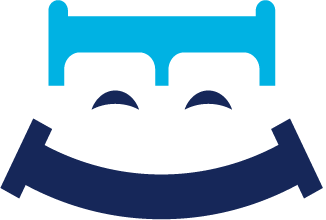World Sleep Day - Top tips to help you sleep better and feel better
 Quality sleep is important to us. It puts us in a better mood, reduces stress, and strengthens our immune system.
Quality sleep is important to us. It puts us in a better mood, reduces stress, and strengthens our immune system.
That’s why, in celebration of World Sleep Day on March 15th, we’ve created a list of our top tips to help you sleep better and feel better:
Get physical – Exercise boosts the effect of natural sleep hormones such as melatonin. A study in the journal Sleep found that post-menopausal women who exercised for about 3.5 hours per week fell asleep easier than women who exercised less often… Just be sure not to exercise too close to bedtime, which can be stimulating.
Get comfortable – Have you ever wondered why you always sleep better in a hotel? It could be a combination of the relaxing environment and a quality bed. Getting the right ambience with a dark, cool environment and quality bedding will help promote sleep onset. Sleep studies have found that:
- Quality bedding can enhance sleep and reduce lower-back pain
- A weighted blanket helps some people with sleep anxiety
- Participants reported improved sleep quality when noise and light diminished
- A new mattress reduced back pain by 57%, shoulder pain by 60%, back stiffness by 59%, and improved sleep quality by 60%
Regulate your routines – Having consistent sleep times can aid long-term sleep quality. Try to go to sleep and wake up at the same time every day, and reduce the length of any naps you can’t avoid taking.
Approach bedtime with care – Sleep is precious. To safeguard your night’s rest ahead of time, prepare your body and mind by:
- Reducing screen time – turning off the TV, laptop and phone
- Reducing your caffeine and alcohol intake – both are stimulus, and alcohol is known to cause or increase the symptoms of sleep apnea, snoring and disrupted sleep patterns. It also alters night time melatonin production, which plays a key role in your body’s circadian rhythm.
- Stop eating two hours before bed, to let your body wind down – and stay away from anything acidic or spicy, which can give you heartburn.
Start a sleep ritual – There’s a reason our parents instilled bedtime rituals when we were little. Rituals tell the body and mind that it’s time to get ready to sleep, so there’s no reason why we shouldn’t build these into our busy adult lives. Why not try:
- Dimming the lights in the hours leading up to bed
- Winding down with a favourite hobby or good book
- Doing some easy stretches
- Drinking a herbal tea
- Listening to meditative music, white noise, or a relaxing sound that makes you feel relaxed – we love the sound of bird song, or the pitter-pattering of rain
- Reserving bed for sleep – don’t watch TV, and turn off your phone, to prevent any temptation to respond to emails, mindlessly scroll through social media, or panic over how busy tomorrow’s diary is looking
Relax in water – A relaxing shower, bath, or even just soaking your feet before bed can help you relax and improve your sleep. Try using a stress relief body wash (ones with eucalyptus and mint are great!)
Clear your mind – stress is a stimulus, which activates the anti-sleep ‘fight or flight’ hormones. By following the steps below, you can clear your mind of troubles to make space for sweet dreams:
- Write a list – keep a notepad by your bed and use this to jot down everything you need to get done tomorrow. This will clear your mind, allowing for a more restful sleep, and getting you off on the right foot from the moment you wake up in the morning.
- Visualise a peaceful place – Close your eyes and imagine a place that’s calming and peaceful. Concentrate on how relaxed this place makes you feel.
- Try deep breathing exercises – Close your eyes and take deep, slow breaths.
- Progessive muscle relaxation – Starting with your toes, tense all the muscles as tightly as you can and then completely relax. Work your way up to the top of your head.
Find your purpose – A study of 823 people between the ages of 60 and 100 found that participants who felt their lives had meaning had better sleep quality, were 63% less likely to have sleep apnea and 52% less likely to have restless legs syndrome. If you’re finding yourself with too much time on your hands or you’re just feeling unfulfilled, reach out to a friend, check out local community groups or volunteering opportunities, or try a hobby you haven’t considered before.
Rule out a sleep disorder – If you’ve ticked off all the above and you’re still struggling to catch enough Z’s, find yourself with an urge to move your legs, have a burning pain in your stomach, throat or chest, or get accused of snoring – speak to your doctor. Common sleep disruptors include restless legs, sleep apnea and gastroesophageal disease. So if in doubt, get checked out – insights from a medical professional could be all you need to give you a greater peace of mind, and achieve better sleep.
